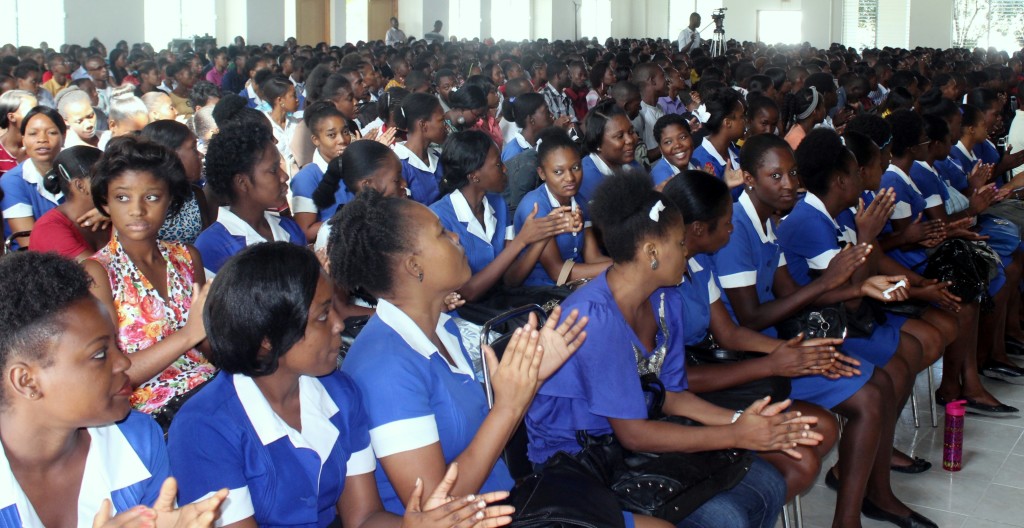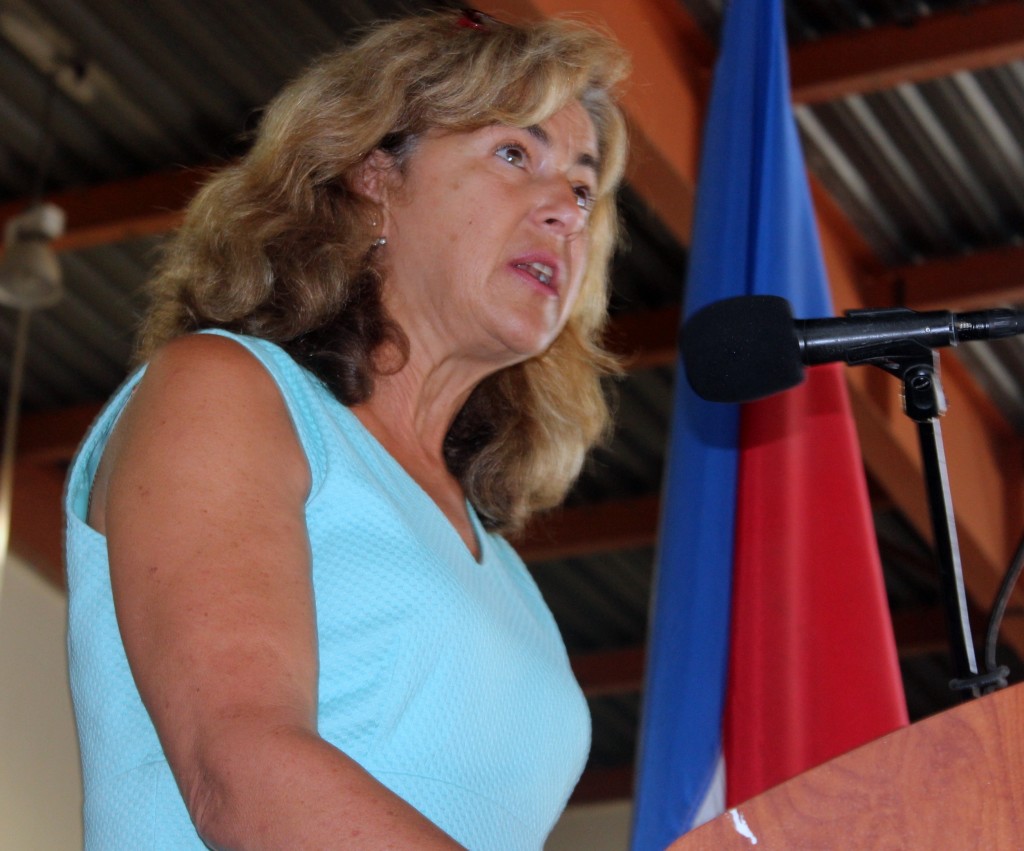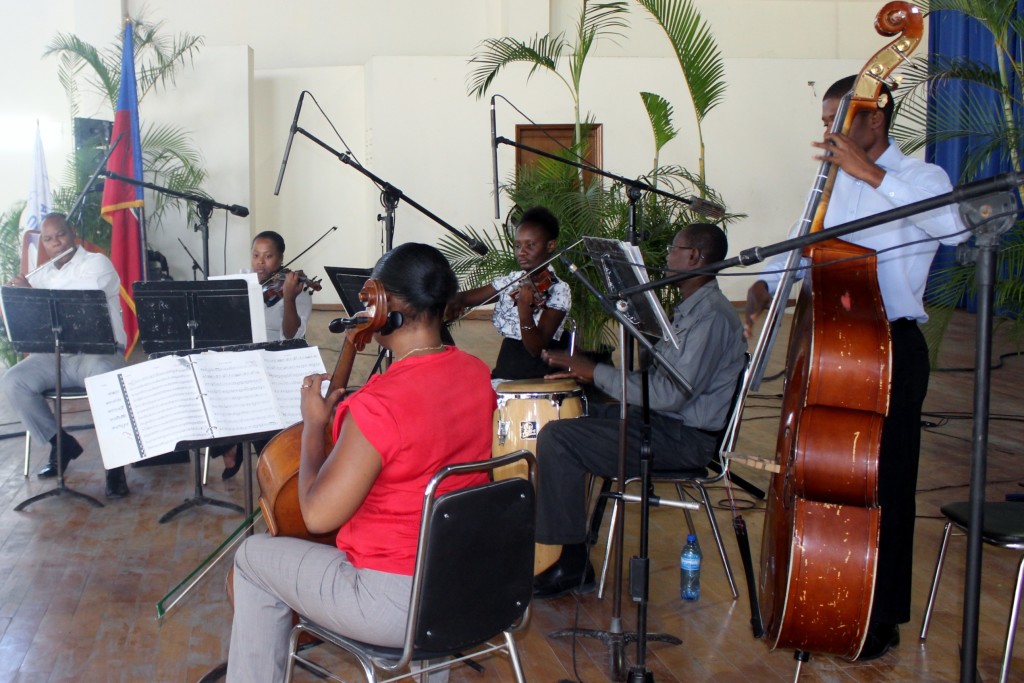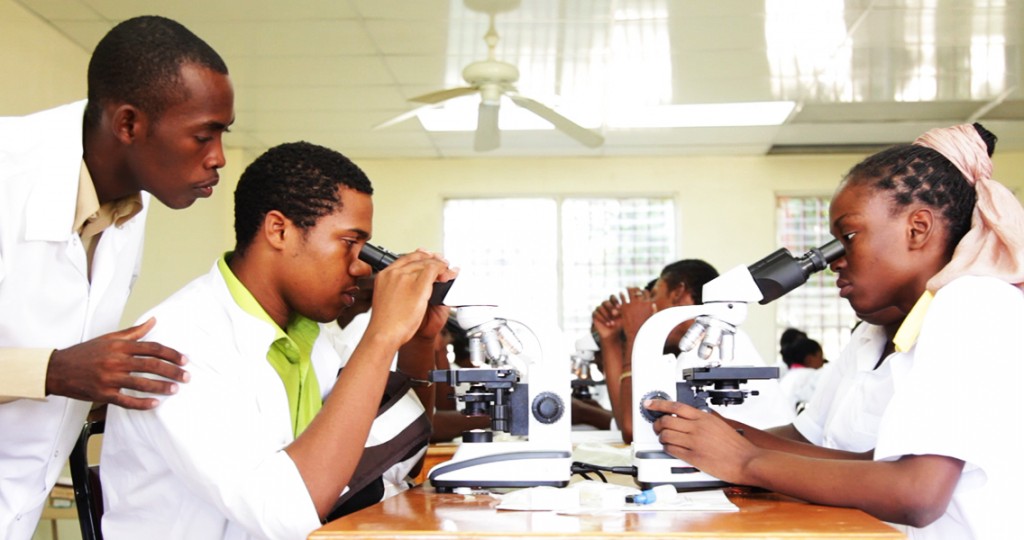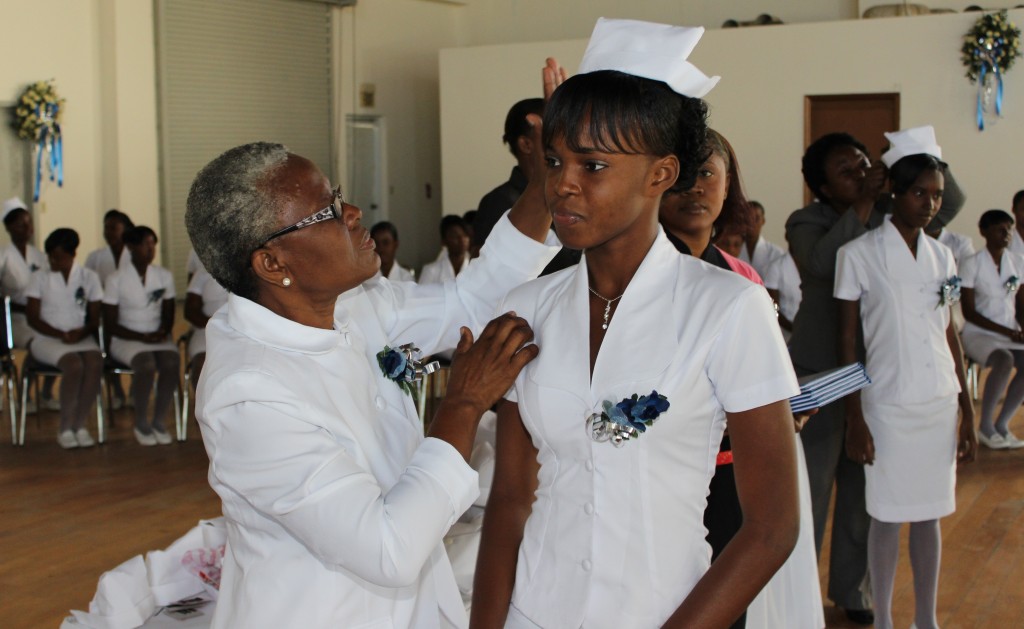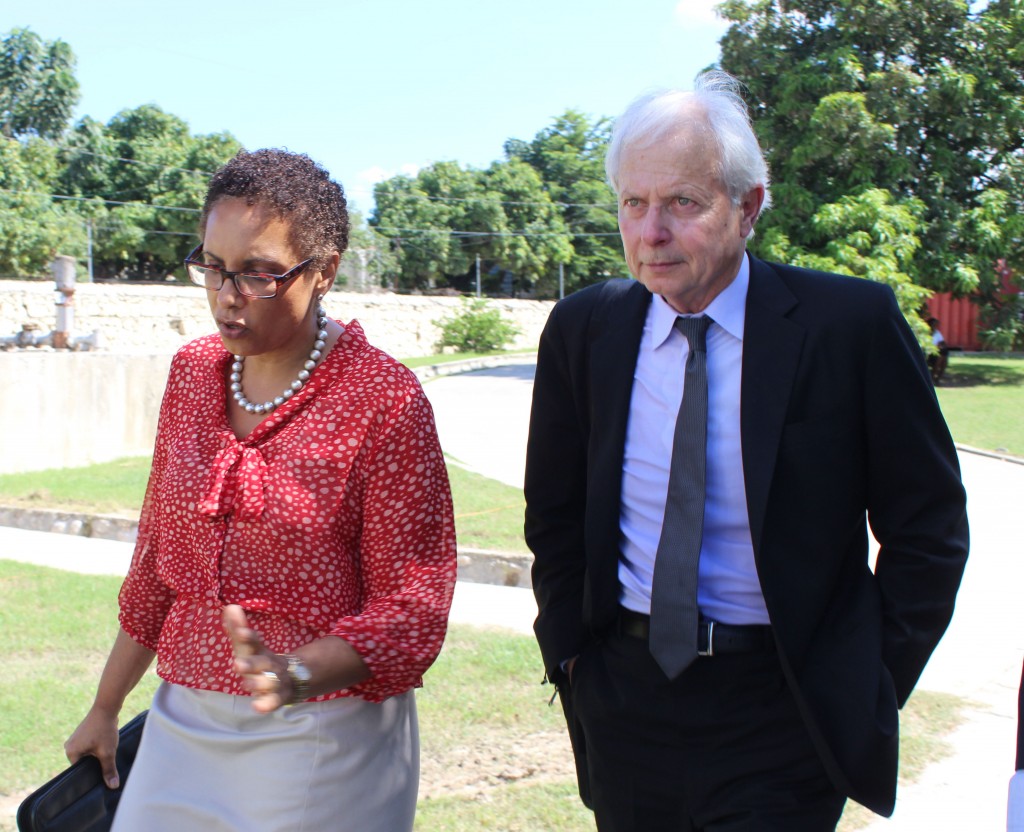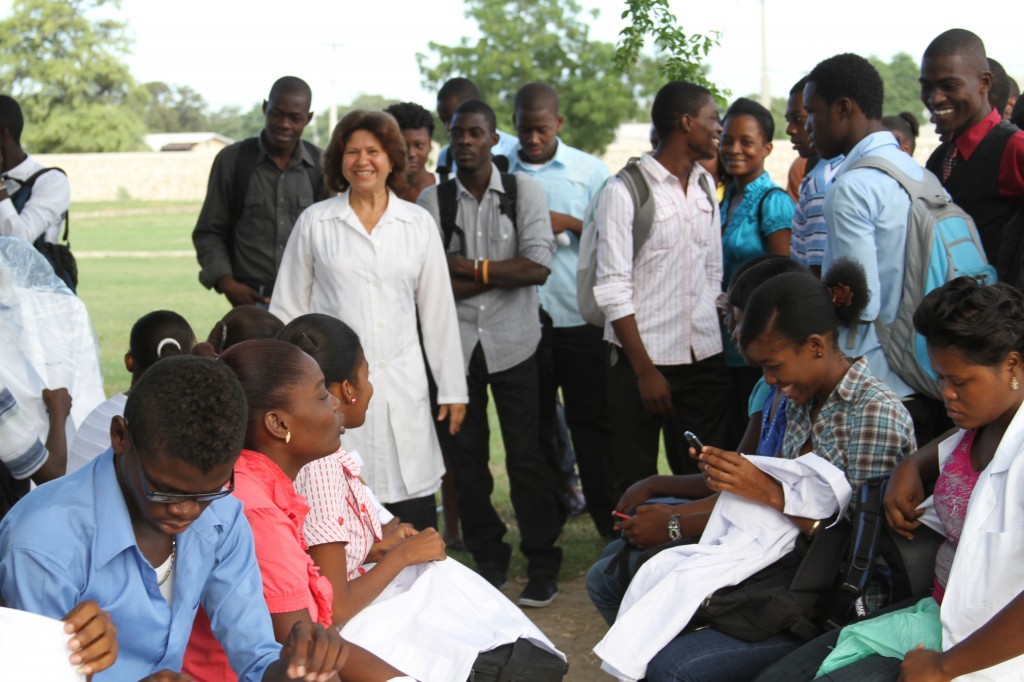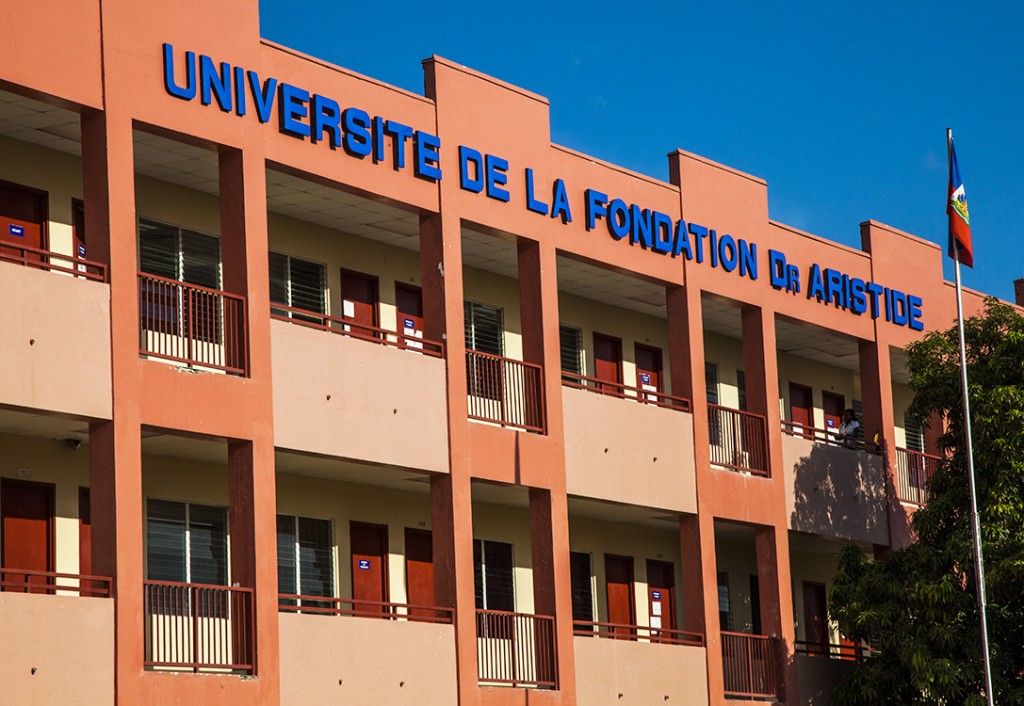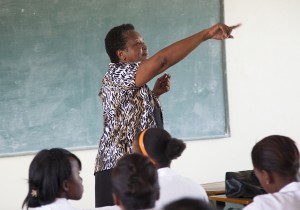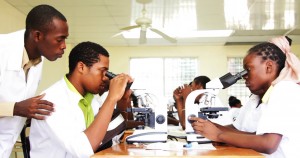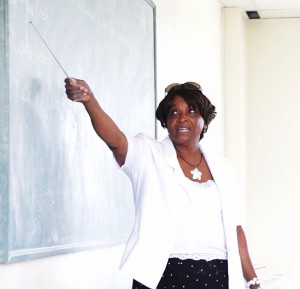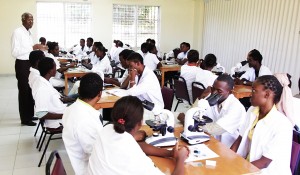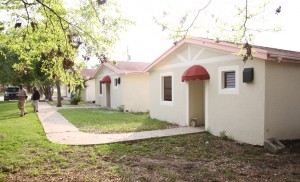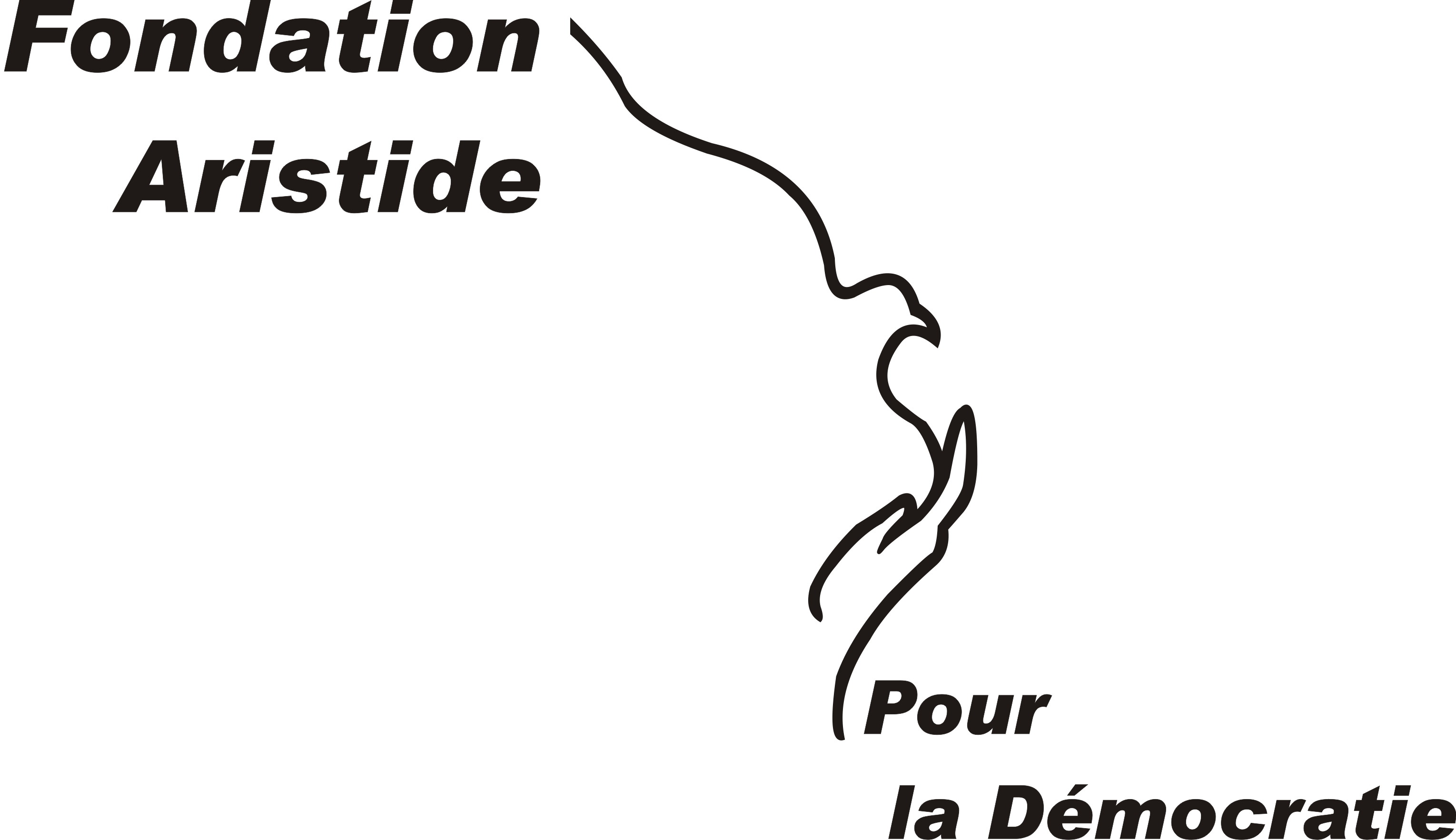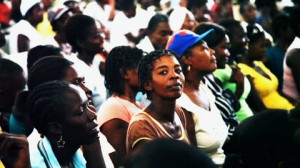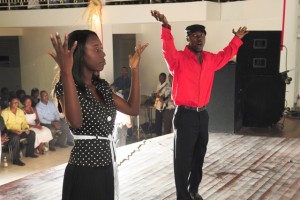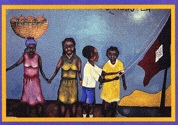UNIFA Academic Year 2015-2016
The 2015-2016 academic year at UNIFA has seen tremendous growth. University enrollment at the start of 2015-2016 was approximately 1600 students. Students admitted in fall 2015 students were drawn from a pool of 1175 applicants, 63% of whom were young women. The highest concentration of applications was in the School of Medicine, followed by the School of Nursing, School of Physical Therapy, and School of Law. In addition, UNIFA launched a new pre-college prepatory program for students who showed great academic promise, but who were not able to gain admission to the University. This program is designed to make good on UNIFA’s promise of serving all Haitians, by creating a pathway to a University education for young people whose high school education has not given them a strong enough academic basis to begin University level courses. A small group of students were also recruited this year to do coursework to prepare them to enter UNIFA’s first class in the new School of Engineering.
The year began with a University wide convocation in October of 2015. Speakers at the 2015-2016 convocation included Mildred Trouillot Aristide, Member of the Council of Administration, Dr. Dina Vital of the Continuing Education Program, Dr. Dodley Severe, Member of the Rectorate and Faculty Member in the School of Medicine, Dr. Michaele Amédée Gédéon, Dean of the Medical Faculty; Fabrice Fievre, Co-Dean of the School of Law; and Chrystel Woel de Delva was the master of ceremonies.
Speaking to the UNIFA student body Dr. Dodley Severe declared: “You are here at UNIFA, not only to receive a diploma, but to guarantee a better future for oursociety.” 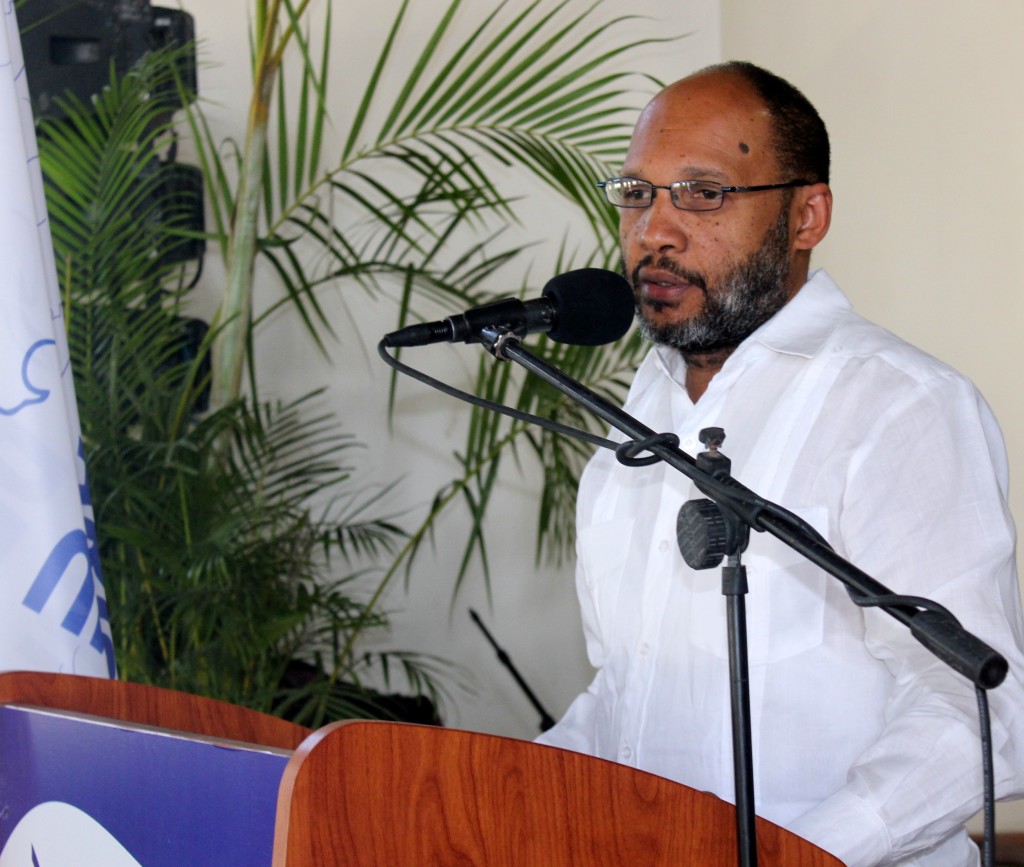
The Convocation Keynote speaker was Professor Erin Daly who joined UNIFA this year as the new the Vice President for Institutional Development.
Here are some excerpts from her from Keynote Address:
…UNIFA is unique not only because of its campus, but in its vision for the future. You have already seen the work that has been done here in the last few years. In the months and years ahead, you will see even more. I promise you. You’ll see the construction of more classes, more laboratories, more spaces to study and work, and additional schools.
But UNIFA is not an island. You are not isolated here, but linked — tied to the communities that you come from, to your surroundings here in Tabarre, and to other educational and professional institutions around the country — to hospitals (where you do your internships), to legal professional organizations, to many different places here and, increasingly, abroad — with professors who come here to teach and to participate in conferences. Moreover, you’re linked through technology to faculty and researchers potentially throughout the world.
And it’s this vision, this ambition, this capacity for growth, to always get better that makes UNIFA such a special place. There’s a momentum here, an energy, a dedication to the art of the possible, that you don’t see that often, either here or in other countries.
This is a place that is unique in another sense as well. It’s the only institution that I know of that is founded on the idea of human dignity. It’s inscribed in the sign that stands just outside. « Si n pa sove diyite n, diyite n ap sove kite n. » If we don’t safeguard our dignity, we will lose it. It’s an idea that is very simple, but very important. An idea that, for you, is not at all new. …
In Haiti, the best reference is in the phrase “tout moun se moun.” But what does this mean? You already know. Each person is a person. That is, each person has value, and each person’s value or worth is the same. The equal worth of each person, everywhere in the world. It’s important, but it’s not just an abstract principle or idea. It’s not just a philosophical principle. In judicial opinions, it’s linked to the full development of the personality, to each person’s ability to realize his or her potential, to become all that one can. And they say, in these legal opinions, that each person has the same right to develop his or her personality as every other person.
So dignity is the essential element that permits us to develop, to grow. It’s not a thing, like a jewel or something we keep inside a safe. We don’t say, “I have my dignity, now that’s done!” Dignity is always a work in progress, as we seek to develop our talents, our intellectual capacity, our spirit; to learn what we are capable of. And to develop just as much as any other person. That’s why we always need to safeguard our dignity — because we don’t ever want to lose the ability to grow.
And that’s also why the idea of human dignity is at the heart of this university. The administration here has confidence not only in who you are, but in what you will become — as students, as professionals, and as participants and contributors to civil society, throughout this wonderful country of yours.
St. Trinity Orchestra opened the ceremony with the National Anthem, then offered students, faculty, administration and guests a selection of classic Haitian music.
At the convocation, along side our national flag, we raised the blue and white flag of our University. A dove, wings open, lifted by a hand, ready for flight. This flag symbolizes UNIFA’s commitment, forever open and ready to welcome professors, students, researchers and friends engaged to support the development of this university community where, in unison we declare:
Education without exclusion.
UNIFA, Four Years of Growth
In the fall of 2014, UNIFA an accredited institution of higher education in Haiti, began its fourth academic year since its rebirth in 2011. The University was founded by former Haitian President Jean-Bertrand Aristide. When he returned to Haiti from forced exile in South Africa in the spring of 2011 he promised to dedicate himself to education in Haiti. Since then he has done just that, reopening UNIFA just six months after his return. There are now over 1000 students studying at the UNIFA campus in four degree granting programs: Medicine, Nursing, Law and Political Science, and a brand new program in Physical Therapy.
New School of Physical Therapy Opens
The new School of Physical Therapy, which opened on Oct 6, 2014, is the first Physical Therapy School in Haiti. (There are only a handful of Physical Therapists in Haiti and all were trained elsewhere.) This program is a partnership between UNIFA and Stony Brook University, State University of New York. This school answers the acute need for Physical Therapists in Haiti, a need that became particularly clear after the 2010 earthquake when many people suffered devastating injuries that require intensive rehabilitative treatment. Stony Brook faculty are working with UNIFA faculty to create the curriculum, and they will provide the much of the teaching staff for the courses particular to Physical Therapy.
Medical School Enrollment tops 500
At the Medical School there are now four classes years of medical students, for a total of over 500 young doctors pursuing their medical training at UNIFA. In January 2014, third-year medical students started clinical training at the University Hospital in Mirbalais run by Partners in Health and at the Bernard Mevs Clinic in Port-au-Prince. Third and fourth year students will continue their clinical training during the 2014-2015 academic year. Dr. Michaèle Amedé Gédéon was appointed as the new Dean of the School of Medicine in the spring of 2014. She is a former Minister of Health, and Director of the Red Cross. Since becoming Dean last spring she has brought tremendous skills, resources, energy, and enthusiasm to all of the health science programs at UNIFA.
Nursing School Will Meet High Demand for Nurses in Haiti
Berteline Beaulieu was appointed director of the School of Nursing in December 2013. She brings to the job over 25 years of experience in nursing, both as a practitioner and educator. Under her leadership second year nursing students completed a three week clinical rotation at Hopital St. Nicolas in the northern city of St. Marc, while nursing students will continue to gain valuable experiencing assisting physicians and nurses at the regularly scheduled health fairs at the Aristide Foundation for Democracy.
Law School Focuses on Human Rights and the Rule of Law
At the Law School, during its first year Jeffrey Brand, the former Dean of the University of San Francisco Law School, served as international visiting dean. In addition to support to the new school and helping to shape curriculum he led a two–week seminar with incoming students on international human rights law.
Visiting Faculty & International Partnerships Connect UNIFA to the Universities Around the World
During the first 3 years, UNIFA welcomed over a 12 visiting professors from the United States, Haiti’s Diaspora Community and one professor of law from Southern Cross University in Australia. The partnership with Stony Brook University promises a steady presence of international faculty within the School of Physical Therapy. Physicians for Haiti, a medical group in Boston continues to recruit and send medical faculty to teach at UNIFA. In April 2014, Dr. James Quesada and Nadine Quesada spent a week at UNIFA. Jim specializes in medical anthropology at San Francisco State University and Nadine is a practicing registered nurse. They co-taught a five-day course (to medical and nursing students) on the physical and psychological effects of trauma. Dr. Diana Chamrad visited in May and lectured on health behaviors. Visiting faculty are scheduled to teach in all three of the health sciences program during the 2014-2025 academic year.
For a second year, Physicians for Haiti hosted a three-week summer course in social medicine at UNIFA. This year UNIFA nursing students join UNIFA and American medical students in this innovative, multidisciplinary class. Fifteen international students, and 10 Haitian students participated in the course.
In September 2014, UNIFA signed a Memorandum of Understanding with Rosalind Franklin University of Medicine and Science (RFUMS), based in Chicago. This partnership seeks to offer on line educational information to UNIFA and enhance UINFA’s information technology capabilities, to recruit other institutions of higher education into the collaborative effort, and involve RFUS faculty in the education of UNIFA and RFUMS students, and the delivery of charitable health-related humanitarian services in a clinical environment.
UNIFA is also collaborating with the diversity program, PRIDE, at NYU School of Medicine to develop a strategic vision for building a strong research division at UNIFA to address the many health and psycho-social problems facing Haiti.
Huge Demand and More Expansion
Demand for entrance at UNIFA continues to be overwhelming. For entrance into the three health sciences programs in the fall of 2014, one thousand three hundred candidates sat for the entrance exams. Before taking entrance exams students must first meet stringent high-school grade and test score requirements. Of the 1300 who met this mark and took UNIFA’s exams, approximately 350 were admitted to the school of medicine, the school of nursing, and the brand new school of physical therapy.
To welcome so many new students the UNIFA campus continues to expand. Over the summer of 2014, a second floor was added to the Nursing School and work began on a new building which will house the School of Physical Therapy. There are now three large building on the UNIFA campus, two if which will likely we further expanded in the near future.
Congratulations to the 350 new UNIFA students who began their studies in October, 2014. Congratulations to the faculty, staff and administrators who have made all this happen!
UNIFA Opens a School of Nursing in Its Second Year
On October 1, 2012, the Medical School at UNIFA began its second academic year. A new video highlights UNIFA’s progress and goals.
Two hundred and fifty-four candidates successfully passed the admissions exam and were accepted as first year medical students. One hundred and eighteen second year students returned to campus for their second year of studies (out of a total of 126 students who began in the fall of 2011). A dozen new teachers joined the teaching staff, raising the faculty’s total teaching staff to over 18.
UNIFA offeres a full complement of science and medical coursework. Language study (French, English and Spanish) continue to be requirements.
UNIFA was able to offer all second year medical students a partial scholarship to assist with their tuition. A memo from the Office of the UNIFA President, Dr. Aristide, informed students that it was indeed the university’s goals to seek out scholarship aid for its students, as it announced this response to needs impatiently expressed by students.
UNIFA offered all second year medical students a partial scholarship. A memo from the Office of the UNIFA President, Dr. Aristide, informed students that it was indeed the university’s goals to seek out scholarship aid for its students, as it announced this response to needs impatiently expressed by students.
Thanks to generous fundraising efforts in the US sponsored by the Haiti Emergency Relief Fund and Partnership for Education, Health and Democracy in Haiti, significant improvements were able to be made on campus: the auditorium was renovated; electric and plumbing infrastructure in the classroom building was repaired; new student desks were purchased; benches and outdoor seating were installed under shaded trees in the courtyards around the Medical School.
SCHOOL OF NURSING
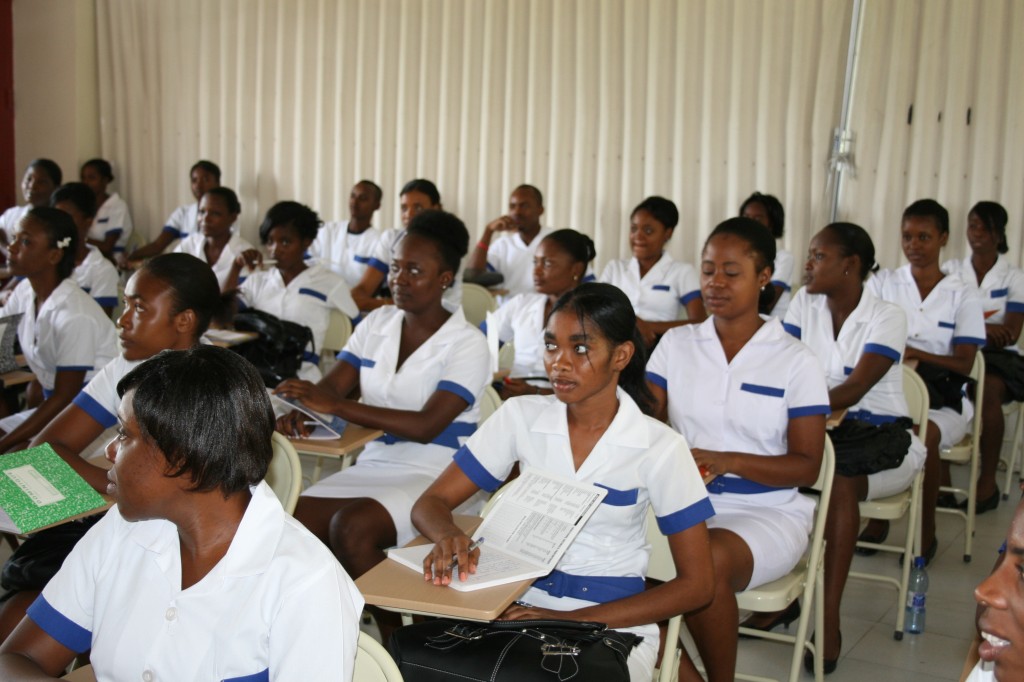 |
In early November 2012, the UNIFA launched its new nursing program. Haiti faces an acute nursing shortage, exaccerbated when hundred new graduates of the state’s nursing school were killed in the January 2010 earthquake. UNIFA’s nursing program aims to address this shortage. UNIFA admitted 73 first year nursing students to its program. These students will complete a 4- year nursing program. Five additional teachers joined UINFA’s teaching staff, while faculty from the medical school covers some core courses like chemistry and anatomy. A simulated nurse’s practice room is being set up on campus. In November, UNIFA held exploratory meetings with two US nursing schools to explore collaborative programs.
VISITING FACULTY
During the fall semester Dr. James Hudspeth, an instructor in Medicine at Boston University School of Medicine, conducted a week long seminar to the second year students focused on HIV/AIDS and tuberculosis. These two diseases are very common in Haiti, and are an important source of illness for doctors working in any aspect of medicine to know about. The students learned essential information about both diseases, including molecular biology, epidemiology, history, diagnosis, prevention, and therapy. This information will inform their subsequent 4 years of study and helps to frame a number of the other illnesses they will learn of in the years to come.
After classes, Dr. Hudspeth spent time with students, extending class discussions.
During the week, Dr. Hudspeth was housed on campus at one of the professor’s residences refurbished last year and set aside for visiting instructors. His visit is part of UNIFA’s partnership with the Boston-based health organization Physicians for Haiti. The group has a going a data bank of of physicians, nurses and instructors interested in teaching at UNIFA. Four more visiting faculty will offer courses in the Spring of 2013.
